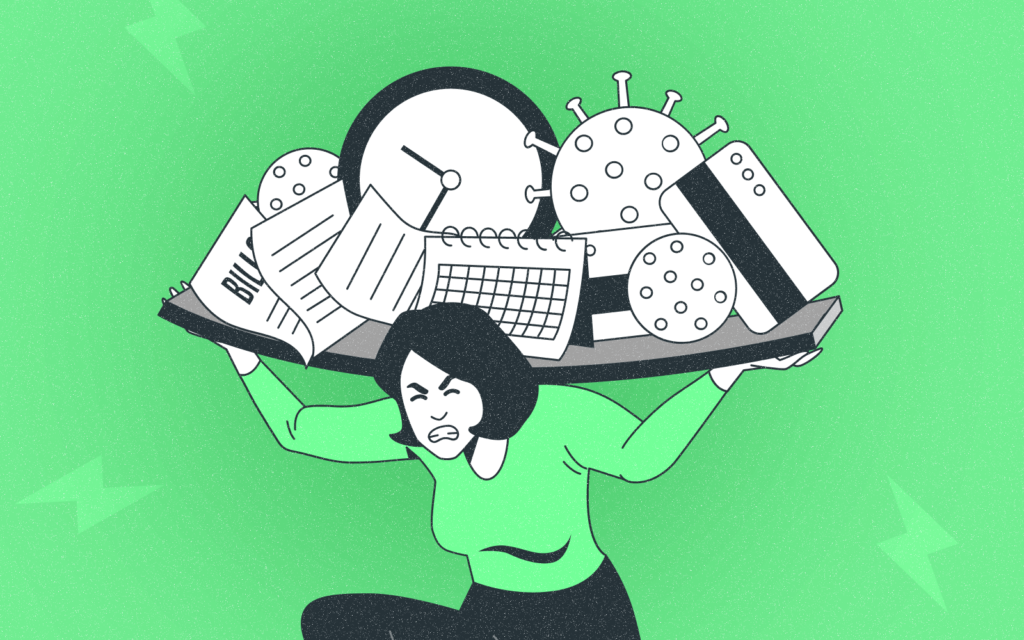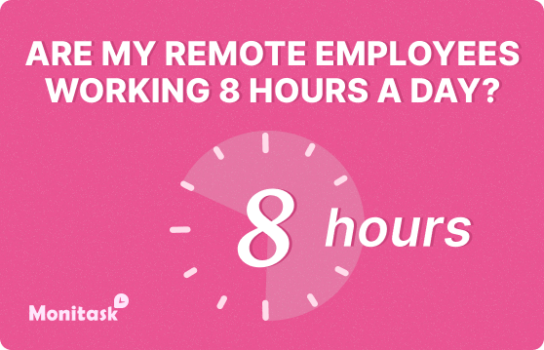10 Effective Stress Management Techniques for Personal Development and Better Work-Life Balance


Stress is unavoidable and can negatively impact our day-to-day lives if we don’t have good stress management techniques.
Stress can hurt your body and mind, even when you have problems at work, with family, or by yourself.
You must find practical techniques for managing your stress levels to better balance your lives and reach your full potential.
In this article, you will see ten powerful strategies for reducing stress and improving overall well-being.
Stress management techniques and their importance
“Practicing stress-management techniques such as deep breathing, meditation, or exercise, to help you stay calm and focused.” Sentoso Hidayat.
Stress management techniques are important for helping individuals cope with the physical, emotional, and mental strain that can arise from stressful events in daily life.
Stress can come from work, school, people you know, money, being sick or being hurt.
Unmanaged stress can lead to serious physical and psychological health problems. Learning effective stress management techniques can help individuals better cope with stress and lead more balanced, happy lives.
How stress can negatively impact physical and mental health

Stress affects people in various ways, and it can cause physical and mental health issues. People who are chronically stressed are more likely to suffer from headaches, high blood pressure, chest pain, and sleep disturbances.
Mental health-wise, chronic stress often leads to increased levels of depression and anxiety. People should manage their stress effectively by exercising or relaxation techniques like deep breathing and meditation to avoid these negative outcomes.
Talking to mental health professionals such as therapists or counselors can help individuals better cope with stress. It is important to take time to deal with stress. This will help keep your body and mind healthy.
10 Effective Stress Management Techniques
1. Practicing Deep Breathing
Taking several deep breaths is a powerful way to relax and reduce stress. Deep breathing can help slow your heart rate, lower blood pressure, and reduce muscle tension. It can also help clear your mind and focus on the present moment.
2. Exercise Regularly
Exercising can reduce your stress and make it easier to handle stress. Exercising releases endorphins, giving you a natural energy boost and a sense of well-being.
3. Set Priorities
Setting priorities in your daily life can help you manage your time better when prioritizing tasks and goals allows for more efficient time use and reduces stress levels.
4. Get Enough Sleep
Poor sleep quality can cause fatigue and irritability, which may increase stress levels. Getting enough restful sleep will help reduce stress, reduce stress’s effects, and increase productivity.
5. Try Relaxation Exercises
Meditation, Yoga, and Tai Chi are all relaxation exercises that can help to reduce stress levels. These activities focus on deep breathing, mindfulness, and physical movements, which help to relax the body and clear the mind.
6. Talk to Someone
Discussing your problems with a friend or family member can help reduce stress levels. Receiving emotional support and having someone listen can provide clarity and understanding.
7. Avoid Negative Thoughts
Negativity can quickly increase stress levels, so replacing negative thoughts with more positive ones is essential. This will help with stress relief as you feel calmer and more in control of the situation.
8. Take Time for Yourself
Taking time out to relax and do activities you enjoy can help reduce stress levels. Relaxing could be anything from reading a book, listening to music, spending time in nature, or having a massage.
9. Practice Self-Care
Self-care is important for managing stress and maintaining good mental health. Taking care of yourself physically, mentally, and emotionally will help you stay balanced and better cope with stress.
10. Seek Professional Help
If you struggle to manage your stress levels, it is crucial to seek professional help. Talking to a therapist or counselor can guide handling stressful situations and relieve stress much more effectively.
These ten stress-reducing strategies will help you manage your stress levels and lead a more balanced, fulfilling life.
Different people handle stress in different ways. Find the way that works best for you. You will feel calmer and more in control with some practice and perseverance.
How do you implement these strategies into your daily life?

Implementing these strategies into your daily life doesn’t have to be complicated or time-consuming. It’s about being mindful and taking the time for yourself that can make all the difference in reducing stress levels.
For example, you could start with just 10 minutes of deep breathing each day or take a few minutes to read a book. Talking to someone you trust when feeling overwhelmed can also help significantly reduce stress levels.
Incorporate exercise into your daily routine as this helps release endorphins and other natural stress-relievers like endocannabinoids, which make us feel better mentally and physically.
Lastly, ensuring enough restful sleep at night is crucial for regulating hormones associated with stress management, such as cortisol and adrenaline too! Practicing these strategies regularly will help keep your mind and body relaxed and healthy over time.
Get more out of your business
Get the best employee engagement content every week via mailing list
The importance of good stress management for overall well-being

It’s no secret that stress can have a negative effect on individuals, especially those in the business world. But while it can be difficult to avoid stressful situations, effective and healthy ways exist to manage and reduce stress levels.
Keep Your Cool
When faced with a stressful situation, it’s important to take a few deep breaths and remain calm before reacting. This allows you time to think about the best approach to the problem and helps you maintain your composure even when under pressure.
Staying calm will also help you better handle any potential conflicts arising from the situation.
Stay Healthy
You need to get enough sleep, eat healthy food, exercise, and not drink too much caffeine. These things help you stay alert and focused in challenging situations by giving you more energy and allowing your body to manage stress hormones like cortisol and adrenaline better.
Be Mindful of Your Mental Health
Managing stress also involves taking care of your mental health by recognizing signs of anxiety or depression before they become overwhelming. To do this, practice self-care activities such as yoga or meditation, which can help alleviate stress by helping you stay in touch with your emotions and providing an outlet for expressing them safely.
Additionally, talking to someone who knows about mental health can help if needed.
The benefits of each technique in terms of personal development and work-life balance

To maintain a work-life balance, personal development must be a priority. This includes taking care of yourself both mentally and physically. All the above techniques can help you stay focused on your goals while also staying healthy.
Let’s take a closer look at why these are important.
The Benefits of Deep Breathing
Deep breathing is an essential part of self-care. It helps to calm the mind and relax the body to think more clearly in high-pressure situations.
We can keep ourselves from being overwhelmed or overworked by focusing on our breath. Regular practice of deep breathing will improve your mental clarity, physical health, and work-life balance overall.
The Benefits of Exercise
Exercise is important for our physical health but also key for our mental health. Working out releases endorphins in the brain, making us feel good and giving us more energy for the day ahead.
Exercise also helps to reduce stress levels which helps us stay focused on our goals without getting bogged down by overwhelming thoughts or emotions.
Exercising regularly will give you more energy throughout the day and improve sleep quality at night, making it easier to manage your workload while maintaining a healthy lifestyle.
The Benefits of Setting Priorities
Setting priorities is essential to personal development because it helps us focus on what matters most.
When you set priorities, decide which tasks to do first. That way, you can get the most important things done. Then you can do other things when you have more time or energy.
Prioritizing your tasks will help you stay organized while ensuring everything gets done promptly without sacrificing your work-life balance or mental well-being.
The Benefits of Getting Enough Sleep

Getting the proper amount of sleep each night helps us focus, stay energized, and make better decisions throughout the day. It can also help reduce stress levels and keep our bodies healthy by allowing them to repair themselves from the day’s activities.
To ensure you get enough sleep, create a consistent bedtime routine that works for you and stick with it—even on the weekends!
The Benefits of Relaxation Exercises
Exercising a lot can help you feel better and less worried. It can also help you think, work, and be healthier. Taking time out to engage in activities like yoga or meditation can be especially helpful in maintaining an excellent work-life balance.
When you do activities, try to focus on your breathing. This will help clear your mind from bad ideas and help you think about important things in life.
The Benefits of Talk To Someone
Sometimes we need a little extra support when things become overwhelming at work or home life gets too hectic. Talking to someone can provide some much-needed perspective and clarity when dealing with difficult situations.
Whether it’s an old friend, family member, or even a therapist, having someone there to listen can be incredibly beneficial for maintaining a healthy work-life balance.
The Benefit of Avoid Negative Thinking
Negative thinking can often lead us down the wrong path regarding personal development and work-life balance.
It can be easy to become fixated on the worst possibilities, making it difficult to focus on the positives or take actionable steps toward success. The best way to avoid negative thinking is by cultivating an optimistic outlook and shifting your perspective from scarcity to abundance.
This will help you stay focused on a positive attitude and reach your goals without being hindered by negativity.
The Benefit of Take Time for Yourself
You must maintain healthy boundaries between work and personal life to ensure you don’t feel overwhelmed or overworked.
Taking time out of your day for yourself is essential, including hobbies such as reading, playing a sport, or even just taking a few moments to relax. Doing so will help you stay energized throughout the day and provide much-needed clarity when tackling challenging tasks at work or home.
The Benefit of Practice Self-Care
Practicing self-care is vital in maintaining a healthy work-life balance. This includes exercising regularly, eating nutritious meals, sleeping well every night, and developing relationships with people who support your endeavors. These practices can help you stay focused throughout the day while boosting your confidence, which will be useful when dealing with difficult situations at home and work.
The Benefit of Seeking Professional Help

Seeking professional help can be very helpful if you ever feel stressed or overwhelmed by stress. A professional person can give you advice and ideas to help you manage the stress in your life.
They may recommend activities or things that will help you relax and focus on what is important.
Identify Your Strengths & Weaknesses
One of the most important benefits of professional help is that it can provide an objective view of one’s strengths and weaknesses, helping individuals identify areas for improvement that they may not have been aware of before.
A qualified expert can offer insight and advice on improving or developing new skills. This could lead to enhanced job performance or a more fulfilling personal and professional life.
Set Goals & Monitor Progress
Another advantage of seeking professional help is a mentor or coach who can guide you in setting achievable goals and keeping track of your progress toward those goals.
Working with a professional also allows you to receive feedback on your actions and evaluate them against your objectives. Use the info you get to make changes so that bad things don’t happen and good things do.
Stay Motivated & Accountable
Having someone who holds you accountable for reaching your targets is also beneficial for personal development and work-life balance.
Professional help gives individuals access to resources such as motivation techniques, which can be invaluable when juggling multiple tasks or facing challenging situations at work or home.
Additionally, having someone outside one’s closest circle can reduce stress levels associated with regular life demands by providing a safe space for discussions without judgment or bias.
Conclusion
Stress management and personal development are critical to a healthy work-life balance.
Utilizing ten effective techniques for combating stress, you can better cope with these feelings to improve and sustain your productivity, maintain clarity of mind, increase mental well-being, enhance physical health, and control excessive stress.
You now have the tools necessary to constructively, tips to manage stress and difficult moments and create a physically and mentally beneficial environment.
Aim to implement each technique into daily life one at a time to avoid becoming overwhelmed or discouraged. Take these ten stress management techniques for your work-life balance and do something constructive today!


